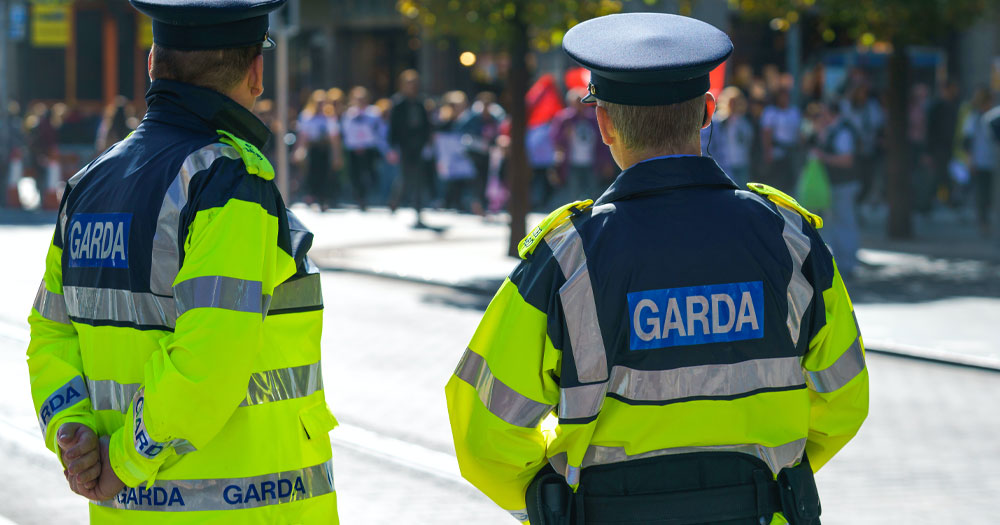According to recent reports, Gardaí are calling for the withdrawal of the Gender Identity in the Workplace policy, a set of rules aimed at providing a safe and inclusive environment for all trans personnel.
The policy was introduced on February 1 of this year, with the purpose of ensuring that all trans Gardaí feel “respected, safe, welcome and included” and that all gender identities and expressions are respected. The document also stated that An Garda Síochána does not tolerate any form of discrimination or harassment and that it is committed to supporting personnel who are “undergoing social or medical transition”.
However, now the Association of Garda Sergeants and Inspectors (AGSI) has called for the policy to be withdrawn until members of the Gardaí are properly educated on matters of gender identity and expression. According to AGSI General Secretary Antoinette Cunningham, members of the force are worried that they could be disciplined for being misguided on the issue, for example, for using the wrong pronouns to refer to a trans person.
“We will be seeking the formal withdrawal of the recent Directive on Gender Identity in the Workplace, owing to the lack of consultation and awareness and especially in light of the recent comments by the Garda Commissioner that the misgendering of a person could lead to discipline,” Antoinette Cunningham said.
She was referring to comments made by Garda Commissioner Drew Harris, who, when questioned about the policy, affirmed that members of the Gardaí who refused to refer to a trans person with the correct pronouns could face a “management response”.
“In the absence of an awareness and education programme for AGSI members on how to properly support colleagues who wish to transition, it is unfair of the Garda Commissioner to issue this directive in its current form,” Cunningham added.
The issue is expected to be discussed this afternoon at the AGSI annual conference in Salthill, Galway. 140 Garda Sergeants and Inspectors will gather at the conference and discuss 24 motions, including the withdrawal of the Gender Identity in the Workplace policy.
This news comes soon after An Garda Síochán published new statistics on hate crimes in Ireland, reporting a 29% increase in the number of incidents, with the LGBTQ+ community being the second most targeted group. According to activist Ailsa Spindler of the Gay Project in Cork, these statistics do not reflect the lived experiences of members of the LGBTQ+ community, as many of them are reluctant to report hate crimes to Gardaí.
Commenting on the fact that a low number of incidents were recorded by Gardaí in Cork, Spindler said: “I don’t think we can be happy that the numbers are low, because I don’t think the figures reflect reality at all. In fact rather I think it just highlights the fact that people, for a number of reasons don’t want to, or don’t feel comfortable, reporting these sort of incidents to the guards.”
They explained that several LGBTQ+ organisations in Ireland are working on a number of ways to approach the issue, including having support charities act as third-party reporters. “If we are third-party reporters, that means people who have suffered hate crimes can come to us and we can report the complaints, or we can arrange for guards to come to our premises and people can report the crime in perhaps a safer space than perhaps they might feel, say, Anglesea Street would be,” Spindler said.
Citing the Hate Crimes bill, which is expected to pass soon, Spindler added that having appropriate legislation against hate crimes would be meaningless if people are fearful about reporting such crimes to the Gardaí. “This is why we and other organisations are looking at ways of improving the reporting of hate crimes, and that is through improving the support that is there for people who are victims,” they said.
© 2023 GCN (Gay Community News). All rights reserved.
Support GCN
GCN is a free, vital resource for Ireland’s LGBTQ+ community since 1988.
GCN is a trading name of National LGBT Federation CLG, a registered charity - Charity Number: 20034580.
GCN relies on the generous support of the community and allies to sustain the crucial work that we do. Producing GCN is costly, and, in an industry which has been hugely impacted by rising costs, we need your support to help sustain and grow this vital resource.
Supporting GCN for as little as €1.99 per month will help us continue our work as Ireland’s free, independent LGBTQ+ media.

comments. Please sign in to comment.